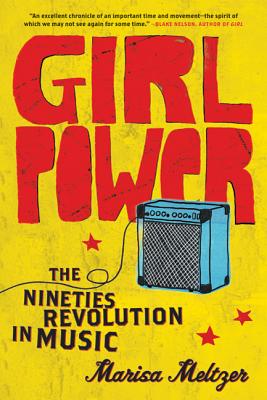Girl Power: The Nineties Revolution in Music

Girl Power: The Nineties Revolution in Music
In the early nineties, riot grrrl exploded onto the underground music scene, inspiring girls to pick up an instrument, create fanzines, and become politically active. Rejecting both traditional gender roles and their parents' brand of feminism, riot grrrls celebrated and deconstructed femininity. The media went into a titillated frenzy covering followers who wrote "slut" on their bodies, wore frilly dresses with combat boots, and talked openly about sexual politics. The movement's message of "revolution girl-style now" soon filtered into the mainstream as "girl power," popularized by the Spice Girls and transformed into merchandising gold as shrunken T-shirts, lip glosses, and posable dolls. Though many criticized girl power as at best frivolous and at worst soulless and hypersexualized, Marisa Meltzer argues that it paved the way for today's generation of confident girls who are playing instruments and joining bands in record numbers. Girl Power examines the role of women in rock since the riot grrrl revolution, weaving Meltzer's personal anecdotes with interviews with key players such as Tobi Vail from Bikini Kill and Amy Ray
PRP: 99.20 Lei
Acesta este Prețul Recomandat de Producător. Prețul de vânzare al produsului este afișat mai jos.
89.28Lei
89.28Lei
99.20 LeiLivrare in 2-4 saptamani
Descrierea produsului
In the early nineties, riot grrrl exploded onto the underground music scene, inspiring girls to pick up an instrument, create fanzines, and become politically active. Rejecting both traditional gender roles and their parents' brand of feminism, riot grrrls celebrated and deconstructed femininity. The media went into a titillated frenzy covering followers who wrote "slut" on their bodies, wore frilly dresses with combat boots, and talked openly about sexual politics. The movement's message of "revolution girl-style now" soon filtered into the mainstream as "girl power," popularized by the Spice Girls and transformed into merchandising gold as shrunken T-shirts, lip glosses, and posable dolls. Though many criticized girl power as at best frivolous and at worst soulless and hypersexualized, Marisa Meltzer argues that it paved the way for today's generation of confident girls who are playing instruments and joining bands in record numbers. Girl Power examines the role of women in rock since the riot grrrl revolution, weaving Meltzer's personal anecdotes with interviews with key players such as Tobi Vail from Bikini Kill and Amy Ray
Detaliile produsului










